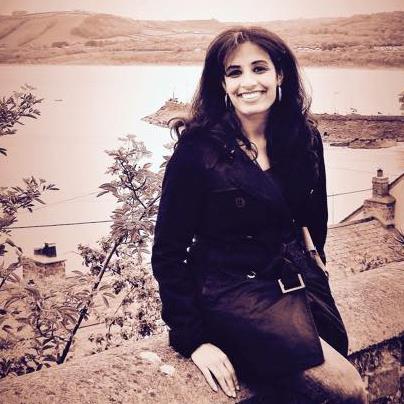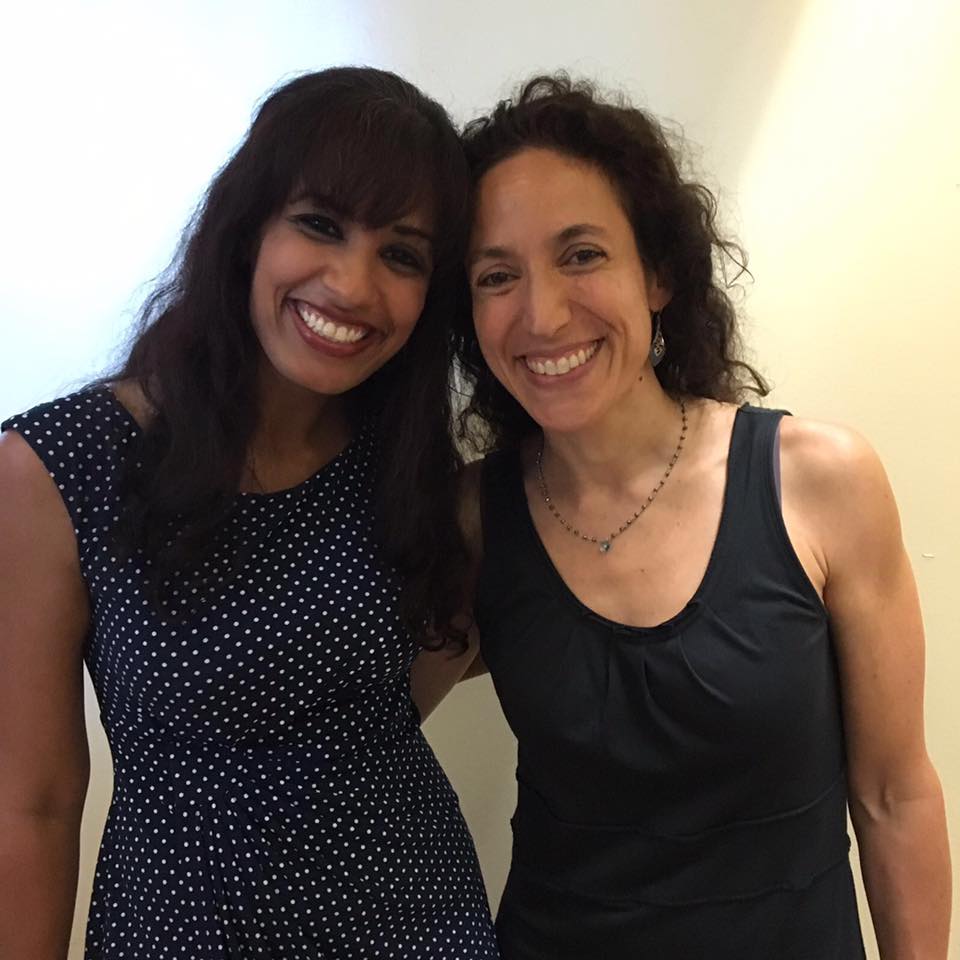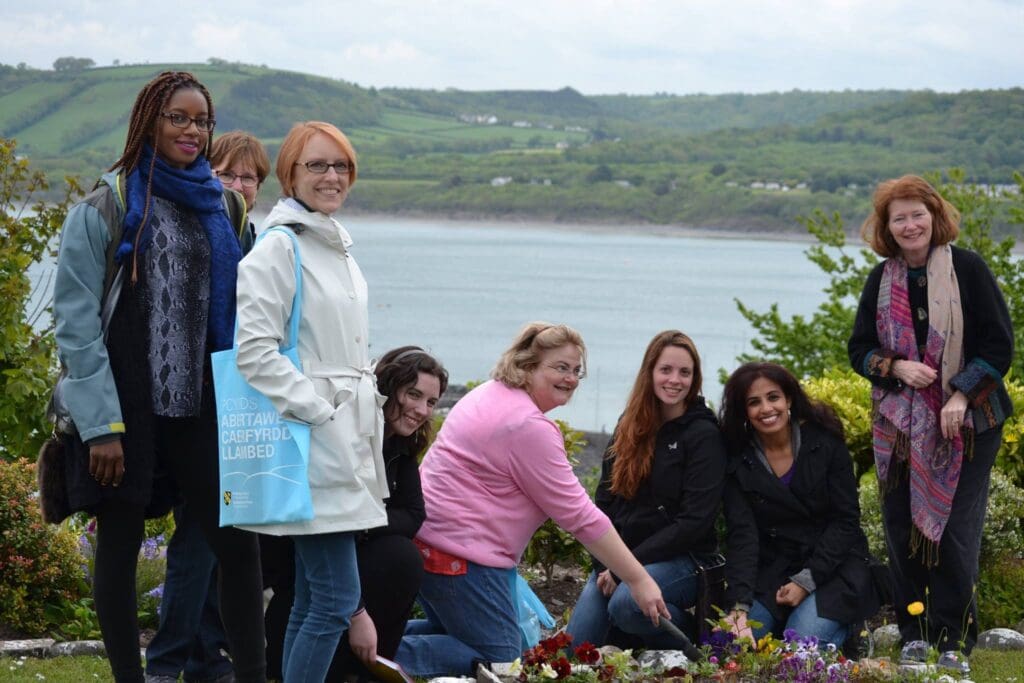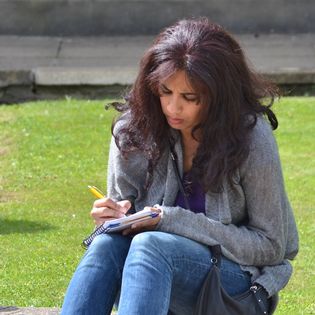At Cambridge Common Writers, we are immensely proud of our community members. In response to the recent increase in violence and hate speech directed towards Asian Americans and Pacific Islanders, we want to highlight the accomplishments of our Asian American and Pacific Islander alums. Our Spotlight series continues in celebration of AAPI Heritage Month — come get to know these very talented alums and learn about their writing lives.
MARIYA TAHER — FICTION, JUNE ’16

While at Lesley University, Mariya Taher received the 2014 Graduate School of Arts & Social Sciences Dean’s Merit Scholarship and the 2016 Lesley University Graduate Student Leadership Award. More recent writing accomplishments include being named a Golden Cod Award fiction finalist for her novel-in-progress, The Chai We Drink, at the Marblehead Festival of Arts, as well as being named a Bread Loaf-Rona Jaffe Foundation Scholar. Mariya is also a social worker and has been recognized globally for her innovative work involving utilizing storytelling to break generational gender-based violence. In 2019, the Muslim American Leadership Alliance awarded her their storytelling award for her human rights work. Her fiction and nonfiction have appeared on NPR, Ms. Magazine, HuffPost, The Fair Observer, Brown Girl Magazine, Solstice Literary Magazine (x , x), Awaaz Voices, The Express Tribune, The San Francisco Examiner, The Flexible Persona, Cecile’s Writers’ Magazine, The New Social Worker, Blue Minaret, Bay Woof, and more. To make sure she is well rounded, Mariya also considers herself an avid chocolate taster, runner, novice potter, and just overall klutz.
Find Mariya on Twitter (@mariyataher83) and LinkedIn!
Mariya is also a Member at Large on the CCW Board!
Why do you write and what do you like to write about the most?
I write all sorts of things from nonfiction to fiction. I’m also a social worker so my nonfiction items tend to be related to gender-based violence issues and more academic or op-ed related. However, I went to Lesley for an MFA in Fiction and fiction is really what brings me the most joy. I love to write short stories and am working on a novel that plays on themes of intergenerational tension, culture, and class. My parents are from India so I grew up a child of immigrants and those are themes that have been and are still a part of my own life, so I like to explore them in my fiction.
Do you have any writing routines or traditions to help inspire creativity?
The last few years, I have struggled with writing because of other competing demands and passions. I’m sure many people can relate. Prior to the pandemic, I used to love to go to a coffee house and sit there for hours and just write. Obviously, the world is different, and you can’t exactly do that. It took me quite some time to adapt and adjust, especially because I work remotely as well and it was hard for me to separate my home space (my work space) from my creative space. But since January 1st, I made this goal that I would write for 30 minutes in the morning each day. I was never able to do that before, write in short spurts, but somehow it’s sticking now, and I’m really enjoying this routine. It has helped me to get back into my novel in a way that makes me feel hopeful that I could get something in the right shape to send to agents by 2022.
What is one book you wish you had written?
Haha. My novel! I refer to it as my forever novel, but I want to have it done now!
What is something that tends to get in the way of your writing and how do you overcome it?
I referred to this a bit earlier, but I’m also a social worker and passionate about ending gender-based violence. I cofounded a non-profit and am very involved in running the operations of it and also work at a communications/research firm. So life is busy. Sometimes I feel like I have no time to write. That has been the challenge for years. But then I look for writing retreats and opportunities where I can take time to purely focus on my writing. That has been how I’ve overcome it in the past, but it’s been snail pace moving. So I’m really excited about this new routine of mine — and maybe an unintended consequence in a positive way about the pandemic is that it has allowed me to finally write in a routine way each day.
Which parts of the Lesley MFA program do you miss, now that you’re writing on your own time?
I miss the mentorship and my fiction cohort. Both aspects were really amazing. I’m still in touch with folks from the MFA program, but the ability to get together in person for ten days was just such a treasure and I do miss that.
If you could get coffee with any writer (dead or alive) who would it be and why?
Oh! Too many to name. Two people that do come to mind are Margaret Atwood and Jhumpa Lahiri.
Tell us a fun fact about yourself that doesn’t have to do with writing.
I’m an avid potter! I’ve been doing it for over two years now and love it. Another fun thing, though I haven’t been doing so as much these past couple of years is that I’ve run over 40 half and full marathons combined.
What are you working on now?
Writing wise, I have a few articles coming out about this project that I’ve been doing for the past few years called the Voices to End Female Genital Mutilation/Cutting project. It’s a digital storytelling project which supports survivors of this form of gender-based violence to come together and write short scripts and tell their stories in short videos. I love the project because it combines my passions of writing and social justice. I’ve been writing a few articles just to highlight the overall project, and we have 11 new stories coming out soon. If you would like to learn more, you can check out our website.
But fiction wise, working on that novel! And hopefully, one day, I can say that you’ll be able to read it too. =)






Comments are closed